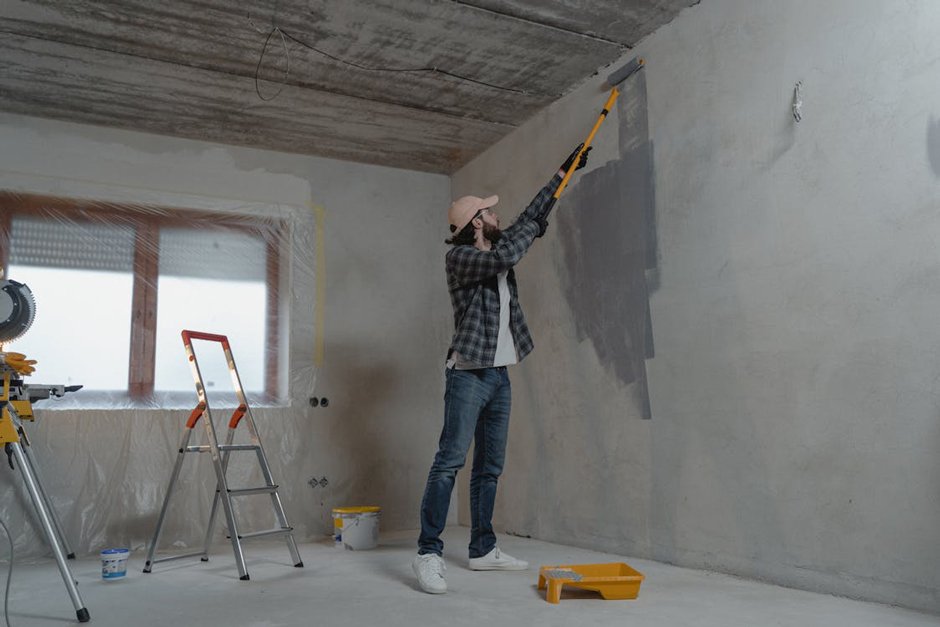In Louisville, homeowners are increasingly drawn to the idea of transforming their living spaces, whether to restore the historic charm of their properties or to infuse them with modern amenities. This rise in remodeling projects reflects a desire to enhance one’s living environment, making it more functional and aesthetically pleasing.
However, the excitement of remodeling comes with its fair share of challenges. The journey from conceptualizing to completing a home renovation project is fraught with potential challenges—from budgetary constraints to unforeseen structural issues. Therefore, the secret to a successful and stress-free remodeling project lies in meticulous preparation. Here, we delve into the initial preparations crucial for anyone considering a home remodel in Louisville.
1. Set a Clear Budget
Begin by establishing a realistic budget that encompasses all foreseeable expenses, including materials, labor, permits, and even a contingency fund for unexpected costs. This financial blueprint will serve as your guide, helping you make informed decisions and prioritize your spending throughout the project. Communicate this budget clearly to your contractor or design team to align expectations and avoid potential overspending. By setting and adhering to your budget from the onset, you can navigate the remodeling process with financial confidence and peace of mind.
2. Rent a Storage Unit
To protect your possessions and provide your contractors with unobstructed access to the workspace, consider renting a storage unit. This step is not just about safeguarding your items; it’s about optimizing the work environment for efficiency and safety.
Moreover, it’s equally important to hire a moving company to move your belonging to a storage unit. Get quotes from multiple Louisville moving companies and opt for one that meets your requirements. Taking this precautionary measure will spare you from the stress of managing clutter and potential damages, making it a wise investment in the smooth progression of your remodeling project.
3. Obtain Necessary Permits
Dealing with permits is a crucial aspect of your remodeling project. Before any work begins, research the specific permits required by your local government. These may vary based on the scope and nature of the project, such as structural changes, electrical upgrades, or exterior modifications. Obtaining the necessary permits ensures your project complies with local codes and regulations, safeguarding against legal and safety issues down the line. It also facilitates a smoother inspection process upon completion. Although navigating the permit process can be complex, it is an indispensable step in ensuring that your remodel meets all legal standards and requirements.
4. Vet and Hire Contractors
The success of your remodeling project largely depends on the skill and reliability of the contractors you choose to bring your vision to life. Start by seeking recommendations from friends, family, or reputable online platforms. Once you have a shortlist, conduct thorough interviews, review their portfolios, and check references to gauge their experience and craftsmanship. It’s also crucial to ensure that their communication style and work ethic align with your expectations. A trustworthy contractor will not only execute your vision with precision but will also navigate the challenges of remodeling with professionalism and transparency. Investing time in selecting the right contractor will pay dividends in the quality and efficiency of your renovation project.
5. Secure Your Living Arrangements
The scope of your remodel may require you to temporarily relocate to ensure your family’s comfort and safety. For extensive renovations, living on-site might not be feasible due to noise, dust, and lack of essential services like plumbing or electricity. Assess the scale of your project and determine if alternate living arrangements are necessary. Whether it’s staying with relatives, renting a short-term apartment, or setting up a temporary living space in an unaffected part of your home, planning your accommodations in advance will help maintain your daily routine and reduce stress. Consider the costs and logistics of your temporary housing in your overall budget and plan.
6. Inform Your Neighbors
Home remodeling projects can impact more than just the homeowners; they can also affect the surrounding community. From noise and dust to increased traffic and parking issues, it’s important to consider your neighbors. Well before the project begins, inform your neighbors about the scope of the work, the anticipated timeline, and any potential disruptions. Providing your contact information for any concerns or questions can foster goodwill and patience. Taking this step not only helps maintain harmonious neighborhood relations but can also smooth over any inconveniences your project might cause.
7. Plan for Waste Removal
Remodeling projects generate a significant amount of waste, from old fixtures and construction debris to packaging materials. Effective waste management is essential for keeping the worksite clean, organized, and safe. Before the project begins, arrange for a dumpster rental or a professional waste removal service. Discuss with your contractor the best practices for waste segregation and recycling to minimize environmental impact. A clean and well-maintained worksite not only facilitates a smoother workflow but also reflects well on your commitment to a professional and environmentally responsible remodeling process.
8. Document Everything
Throughout your remodeling journey, meticulous documentation is your best ally. Keep a comprehensive record of all contracts, agreements, permits, receipts, and correspondence with your contractor and suppliers. This documentation serves multiple purposes: it provides clarity and reference for the scope of work and agreements, aids in resolving any disputes, supports warranty claims, and is useful for insurance purposes. In today’s digital age, consider creating digital copies of all documents as a backup. Organizing and maintaining these records can save you considerable time and trouble in the long run.
Conclusion
Embarking on a home remodeling project in Louisville—or anywhere, for that matter—demands more than a vision and a financial plan. It requires a comprehensive approach to preparation, covering everything from securing permits and hiring the right contractors to planning for delays and managing waste. Each of these steps plays a crucial role in the success of your project, helping to ensure that your remodeling journey is as smooth and stress-free as possible. Remember, the foundation of a successful home renovation lies not just in the dreaming but in the diligent, thorough preparation. By taking these preparatory steps seriously, you’re not just planning for a remodel; you’re paving the way for a more enjoyable and rewarding transformation of your home. As you move forward, embrace each phase of the process with patience and foresight, and watch as your vision for your home becomes a reality.






